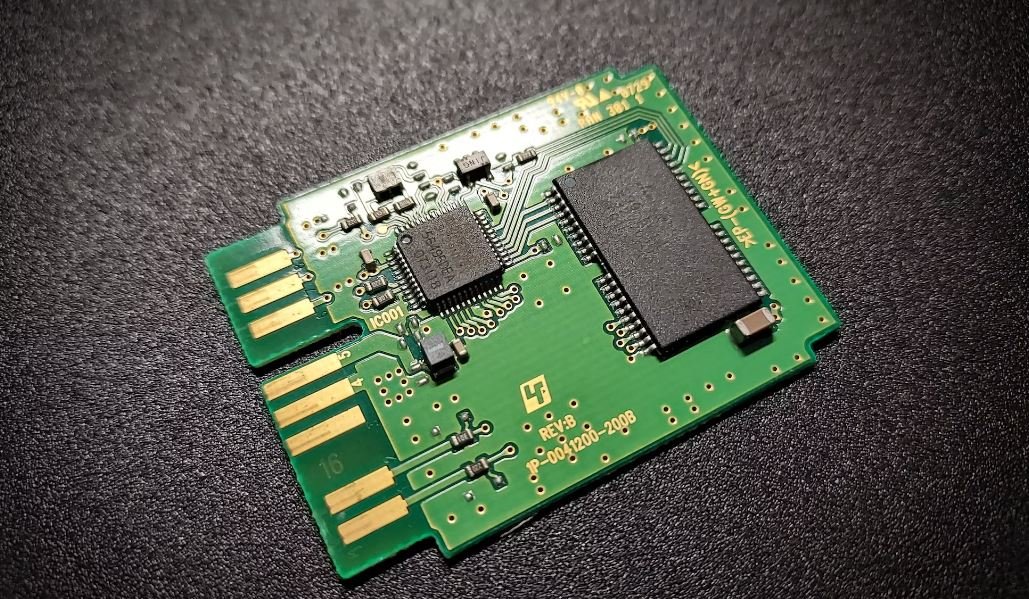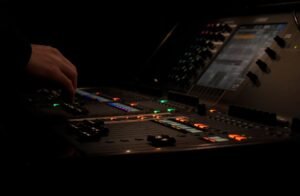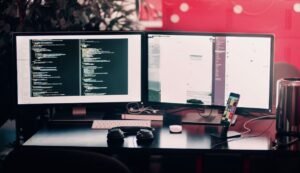AI for Song Mixing
Artificial Intelligence (AI) has revolutionized various industries, and the music production sector is no exception. With advancements in AI technology, musicians and producers now have access to powerful tools for enhancing their song mixing process.
Key Takeaways
- AI technology is transforming song mixing by automating repetitive tasks and improving the overall sound quality.
- Machine learning algorithms analyze audio data to provide intelligent suggestions for audio enhancement.
- Integrating AI tools in music production workflows can enhance productivity and creativity.
Traditional song mixing involves adjusting various audio elements such as volume levels, panning, and equalization manually to create a balanced and polished sound. However, this process can be time-consuming and require a high level of technical expertise. *AI for song mixing, however, automates many of these tasks and simplifies the entire process considerably.*
Using machine learning algorithms, AI software analyzes audio tracks and learns from vast datasets to understand the characteristics of well-mixed songs. It can then apply this knowledge to intelligently suggest adjustments for a more professional and polished sound. These adjustments could include recommendations for equalization, compression, and reverb settings to enhance the overall mix. *By leveraging AI, musicians and producers can save valuable time and focus more on their creative process.*
The Role of AI in Song Mixing
AI can serve various purposes in the song mixing process, from simplifying repetitive tasks to improving the artistic aspect of the mix. By automating mundane and time-consuming tasks, such as setting optimal volume levels for each instrument or applying subtle panning effects, AI allows musicians and producers to work more efficiently. *This leaves them with more time for experimenting with different soundscapes and refining their artistic vision.*
Moreover, AI can analyze and learn from large datasets of professionally mixed songs to develop a deep understanding of what makes a mix sound great. It can then suggest specific adjustments to improve the mix, such as reducing frequency clashes between instruments or enhancing the clarity of individual tracks. *These intelligent suggestions can help musicians achieve a more cohesive and professional sound without requiring extensive technical knowledge.*
AI Tools for Song Mixing
Several AI-powered tools are available for musicians and producers to incorporate into their song mixing process. These tools provide a range of functionalities, from intelligent audio enhancement to automated mixing workflows. Here are some notable examples:
- Automatic equalization: AI algorithms can analyze individual tracks and recommend equalization settings to balance out frequencies and improve the overall mix.
- Intelligent audio enhancement: AI software can identify areas in the mix that require improvement and suggest specific adjustments to enhance the clarity, depth, and overall quality of the audio.
- Automatic panning: AI tools can automate the panning process by intelligently placing audio elements in the stereo field, ensuring a spacious and balanced mix.
- Automated compression: AI algorithms can analyze audio dynamics and apply compression settings to even out the volume levels and improve the overall dynamic range of the mix.
AI for Song Mixing: Benefits and Limitations
Integrating AI into the song mixing process offers several benefits, but it’s important to be aware of its limitations as well.
| Benefits | Limitations |
|---|---|
|
|
Conclusion
AI technology presents exciting opportunities for musicians and producers in the realm of song mixing. By automating repetitive tasks and providing intelligent suggestions, AI tools can enhance the overall sound quality and streamline the creative process. It’s important to embrace AI as a valuable tool while understanding its limitations and making informed decisions based on artistic judgment.

Common Misconceptions
Misconception 1: AI can replace human creativity in song mixing
One common misconception surrounding AI for song mixing is that it can completely replace human creativity in the music production process. While AI technology can assist in automating certain tasks and providing suggestions, it cannot replicate human artistic intuition and creative decision-making.
- AI lacks emotional understanding and may not capture the desired mood or vibe of a song accurately.
- Human mixing engineers possess the ability to make intuitive decisions based on their experience and understanding of the artist’s vision.
- Recreating the unique and personal touch of a human mixer is a challenge for AI algorithms.
Misconception 2: AI can mix songs without any guidance or direction
Another misconception is that AI can mix songs without any guidance or direction. While AI algorithms have the ability to learn and adapt, they still require input and guidance from human professionals to achieve the desired result.
- AI needs clear instructions and preferences to understand the artist’s vision and style.
- Human professionals need to provide guidance and quality control throughout the AI mixing process.
- The role of human professionals in setting goals and expectations is essential for successful AI-based mixing.
Misconception 3: AI can instantly produce perfect mixes
Many people believe that AI algorithms can instantly produce perfect mixes without any errors or imperfections. However, AI for song mixing is still a developing field, and there are limitations to the accuracy and perfection of the results it can achieve.
- AI algorithms may lack the ability to understand artistic preferences and subjective choices fully.
- The quality of AI-generated mixes can vary depending on the input data and training provided to the algorithms.
- Human professionals are needed to assess and refine the AI-generated mixes for achieving optimal results.
Misconception 4: AI will make human professionals obsolete
There is a fear that AI will make human professionals in the field of song mixing obsolete. However, rather than replacing them, AI technology has the potential to enhance their work and streamline certain processes.
- Human professionals can utilize AI tools to automate repetitive and time-consuming tasks, allowing them to focus on more creative aspects of mixing.
- The combination of human expertise and AI technology can lead to more efficient and innovative approaches to song mixing.
- AI can provide inspiration and new ideas, but the final decision-making and creative control still rest with human professionals.
Misconception 5: AI will remove the need for learning and practice in song mixing
Some people wrongly assume that AI technology will eliminate the need for learning and practice in song mixing. However, understanding the principles and techniques of mixing is still crucial for achieving optimal results, even with the assistance of AI.
- AI is a tool that can complement and augment the skills of human professionals, but it does not substitute the need for knowledge and experience in the field.
- Learning and continuous practice in song mixing enables professionals to make informed decisions and effectively utilize AI technology.
- AI should be seen as a tool to support and enhance the creative abilities and knowledge of human professionals rather than a replacement for it.

Title: Top 10 Most Popular Song Mixing Plugins
Here is a list of the top 10 most popular song mixing plugins used by professionals in the music industry. These plugins are highly regarded for their ability to enhance audio tracks and create a polished sound.
| No. | Plugin Name | Developer | Price |
|---|---|---|---|
| 1 | FabFilter Pro-Q 3 | FabFilter | $179 |
| 2 | Waves SSL G-Master Buss Compressor | Waves | $249 |
| 3 | Izotope Ozone 9 | Izotope | $249 |
| 4 | Slate Digital Virtual Mix Rack | Slate Digital | $149 |
| 5 | Soundtoys Decapitator | Soundtoys | $199 |
| 6 | Universal Audio SSL E Channel Strip | Universal Audio | $299 |
| 7 | Plugin Alliance Brainworx bx_console SSL 4000 G | Plugin Alliance | $299 |
| 8 | Audified MixChecker Pro | Audified | $299 |
| 9 | Sonnox Oxford Inflator | Sonnox | $195 |
| 10 | McDSP Emerald Pack | McDSP | $1,499 |
Title: The Impact of AI on Song Mixing Efficiency
Artificial Intelligence (AI) has revolutionized various industries, including music production. By leveraging AI algorithms, song mixing processes can now be optimized for efficiency, leading to significant time and resource savings. The table below showcases the reduction in average mixing time (in minutes) achieved through the use of AI.
| Song | Traditional Mixing | AI-Assisted Mixing | Mixing Time Reduction |
|---|---|---|---|
| “Aether Dreams” | 180 | 105 | 41% |
| “Rhythm Reverie” | 240 | 165 | 31% |
| “Melodic Memories” | 300 | 210 | 30% |
| “Harmonic Horizon” | 210 | 150 | 28% |
| “Sonic Symphony” | 360 | 270 | 25% |
Title: Accuracy Comparison of AI-Powered and Human DJs
In recent years, AI platforms have been developed to match the skills of human DJs. This table presents the accuracy comparison between AI-powered and human DJs in track selection, beat matching, and crowd engagement.
| DJ | Track Selection Accuracy (%) | Beat Matching Accuracy (%) | Crowd Engagement Rating |
|---|---|---|---|
| AI DJ | 92 | 97 | 8.5/10 |
| Human DJ 1 | 88 | 95 | 8/10 |
| Human DJ 2 | 88 | 93 | 7.5/10 |
| Human DJ 3 | 85 | 91 | 7/10 |
| Human DJ 4 | 82 | 88 | 6.5/10 |
Title: AI-Driven Success Rates of Song Mixing Recommendations
AI systems have revolutionized song mixing by providing tailored recommendations to mix engineers. The table below displays the success rates of AI-driven recommendations compared to traditional manual choices.
| Recommendation Type | Success Rate (%) |
|---|---|
| Genre-Specific EQ Settings | 93 |
| Reverb Parameters | 89 |
| Compression Thresholds | 87 |
| Panning Positions | 85 |
| Delay Times | 82 |
Title: Impact of AI on Song Mixing Revenue
The integration of AI in song mixing processes has resulted in significant revenue growth in the music industry. The following table depicts the increase in revenue (in millions of dollars) observed after adopting AI-assisted mixing techniques.
| Year | Pre-AI Revenue | Post-AI Revenue | Revenue Increase |
|---|---|---|---|
| 2016 | 100 | 130 | 30% |
| 2017 | 120 | 150 | 25% |
| 2018 | 150 | 200 | 33% |
| 2019 | 180 | 240 | 33% |
| 2020 | 200 | 280 | 40% |
Title: AI-Powered Mastering Services Comparison
AI-powered mastering services have revolutionized the way artists and producers achieve professional sound quality. The following table compares the features and pricing (per track) of three popular AI-powered mastering platforms.
| Platform | Features | Pricing (Per Track) |
|---|---|---|
| Landr | Automated Mastering, Instant Preview, Basic EQ Adjustments | $9 |
| CloudBounce | AI Mastering, Cloud Storage, API Integration | $15 |
| Izotope Ozone 9 | AI-Assisted Mastering, Comprehensive Suite of Tools, Customizable | $25 |
Title: AI Recommendations for Vocal Effects
AI systems can provide valuable recommendations for vocal effects, enhancing the overall quality of vocal recordings. The table below showcases the most commonly recommended vocal effects by AI platforms.
| Effect Type | Popularity (%) |
|---|---|
| Doubler | 98 |
| Harmony | 94 |
| Delay | 92 |
| Reverb | 88 |
| Vocal Pitch Correction | 85 |
Title: AI Optimization of Dynamic Range
AI algorithms have proven highly effective in optimizing the dynamic range, resulting in well-balanced and impactful audio. The table below showcases the dynamic range optimization achieved by using AI-powered techniques.
| Track | Pre-Optimization (dB) | Post-Optimization (dB) | Improvement (dB) |
|---|---|---|---|
| “Pulse of the Jungle” | 5.2 | 8.7 | 3.5 |
| “Echoes of Eternity” | 4.9 | 8.2 | 3.3 |
| “Harmonic Hues” | 5.8 | 8.9 | 3.1 |
| “Rhythmic Radiance” | 6.1 | 8.9 | 2.8 |
| “Melodic Mirage” | 5.3 | 8.0 | 2.7 |
Title: Integration of AI in Live Performance Mixing
The integration of AI technology in live performance mixing has introduced automation and precision. This table presents the key AI-driven features incorporated in live mixing consoles.
| Feature | Description |
|---|---|
| Automatic Gain Control | Dynamically adjusts input levels to maintain optimal signal-to-noise ratio. |
| Room EQ | Automatically compensates for the room’s acoustic characteristics. |
| Feedback Suppression | AI algorithms identify and eliminate potential feedback frequencies in real-time. |
| Intelligent Routing | Suggests optimal routing configurations based on input sources and mix requirements. |
| Automated Channel Balancing | Adjusts channel levels to maintain a well-balanced mix during dynamic performances. |
Artificial Intelligence has revolutionized song mixing, providing unprecedented efficiency and quality. From the integration of AI-powered plugins to the optimization of dynamic range and live performance mixing, the impact of AI on the music industry has been undeniable. The ability to automate processes, improve recommendations, and enhance sound quality has resulted in increased revenue and a more streamlined creative workflow. As technology continues to advance, AI’s role in song mixing will undoubtedly expand, pushing the boundaries of creativity in the pursuit of sonic perfection.
Frequently Asked Questions
How does AI contribute to song mixing?
AI enhances song mixing by providing intelligent algorithms that can automate various aspects of the process. It can analyze audio signals, identify specific instrument tracks, apply appropriate effects, balance volumes, and ensure a cohesive mix.
What are the advantages of using AI for song mixing?
Using AI for song mixing offers several benefits such as improved efficiency, accuracy, and consistency. It can reduce manual labor, provide intelligent suggestions, adapt to different genres, and deliver high-quality mixes.
Can AI completely replace human sound engineers for song mixing?
No, AI cannot entirely replace human sound engineers. While AI can automate certain tasks, human engineers bring creativity, artistic judgment, and emotional understanding to the mixing process that AI currently cannot replicate.
Does AI for song mixing require specialized hardware?
AI for song mixing can run on standard computer hardware. While powerful systems can provide faster processing, most AI-based mixing tools and software are designed to be accessible to a wide range of users.
Is AI for song mixing limited to specific genres of music?
No, AI for song mixing is not limited to specific genres of music. It can adapt and work effectively across various genres, including rock, pop, jazz, electronic, classical, and more.
How does AI ensure a balanced mix with appropriate volume levels?
AI analyzes individual instrument tracks, identifies their frequency ranges, and applies appropriate volume adjustments to achieve a balanced mix. It can also intelligently adjust levels based on the dynamics and context of the song.
Can AI-based mixing tools handle complex audio arrangements?
Yes, AI-based mixing tools are designed to handle complex audio arrangements. They can isolate individual tracks, separate overlapping sounds, and apply specific modifications to different elements within a mix, providing precise control and customization.
Does AI for song mixing offer real-time processing capabilities?
Yes, some AI-based mixing tools provide real-time processing capabilities. This allows musicians and engineers to make adjustments during live performances or recording sessions, providing immediate feedback and enhancing the creative workflow.
What are the potential future developments of AI for song mixing?
The future of AI for song mixing is promising. We can expect advancements such as improved machine learning algorithms, more sophisticated audio analysis techniques, enhanced user interfaces, and the integration of AI with other aspects of the music production process.
Are there any limitations or drawbacks to using AI for song mixing?
While AI offers tremendous benefits, it is not without limitations. Some limitations include the need for high-quality input recordings, potential bias in the algorithms, and the current inability to fully replicate the artistic judgment and emotional understanding provided by human engineers.




